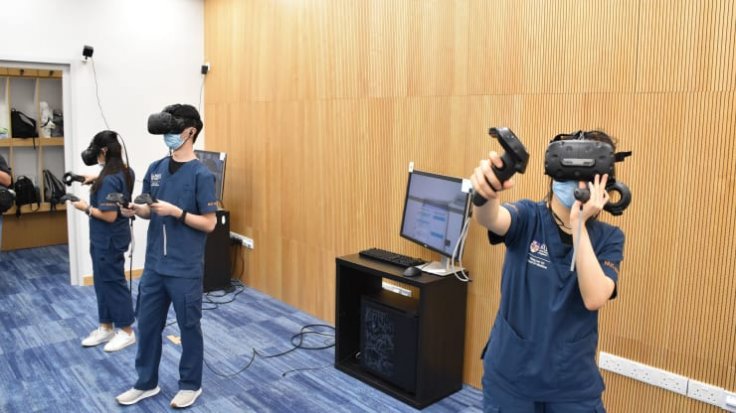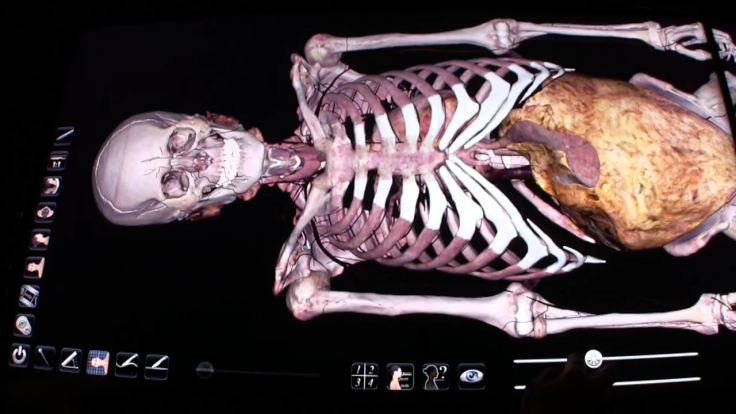The ongoing Coronavirus pandemic has led to schools and colleges being shut in many countries. While conducting online classes has taken precedence, it hasn't really solved the problem of medical students. They just can't rely on virtual theory classes. They also need practical knowledge.
But during the pandemic, practical classes are kind of a no go and access to operating rooms (ORs) are also heavily restricted. However, universities in Singapore may already have the answer: virtual reality (VR) and artificial intelligence (AI).

VR Classes for Medical Students
The National University of Singapore's Yong Loo Lin School of Medicine is using VR to conduct practical classes. At first glance, you may mistake them as playing virtual games as the undergraduate students are donning VR headsets and hand-held controllers. But the program they are using is different.
From "dental clearance to anesthesia evaluation", to the handling of surgical equipment and even patient management, students learn the perioperative settings through their VR experience called PAtient Safety aS Inter-Professional Training (PASS-IT).
While the "gamified" experience may not give the medical students hands-on knowledge, it helps them understand how operating room functions. In normal times, they might have accompanied a real surgeon to the OR. Asia's one of the best medical colleges, NUS, says it helps students observe the roles of each healthcare worker and it could allow them to gain a greater appreciation of each other.

"PASS-IT's gamified style lets multiple learners be immersed in situations where they are given the opportunity to participate in what would usually be a highly restricted environment," said Professor Alfred Kow, a surgeon and Assistant Dean of NUS Medicine. He is one of the teachers who is spearheading the initiative.
"With the COVID-19 situation, students have also been removed from these settings of practical learning due to the risk of exposing them to aerosol-generating procedures," he added saying that the VR system is a good tool to help the students learn despite "increased clinical restrictions."
Mistakes Not Costly
If you thought it's just a fun way to learn, you might be mistaken. It's an immersive experience where every movement is tracked and evaluated in real-time. Through analysis of data, students can correct their movements to save time while they can improvise their actions that could help in real-world surgery.
Dr Kow said the tool allowed students "to make mistakes, learn in a safe environment and ensure that they are competent before they enter actual clinical environment to care for patients." While mistakes in a real OR could be costly, such simulations help students learn the nitty-gritty.
Assistant Professor Terry Pan from the Department of Anesthesia said it gave students "a unique opportunity to continue the operating theater learning experience virtually in a safe and structured manner."
Plastic Polymer Organs
While the pandemic has definitely pushed the colleges to implement technology in teaching methods, it is not the first time that Singapore has done something of that sort. Another medical school in Singapore, Nanyang Technology University (NTU) has been using plastinated bodies to conduct anatomy classes.
Such cadavers are of real humans but preserved using plastic polymers and 3D printing machines. NTU's Lee Kong Chian School of Medicine has been using such cadavers as they are durable and can be used repeatedly. They have also been using the Anatomage Table, which shows 3D images of full-size body anatomy. The tool uses CT, CBCT, MRI scans besides its own radiology software to construct a 3D image of a human body that can be used to diagnose a patient.

AI-Powered Lesson Recommendation
If that was for medical students, Singapore also has something in store for other students. Singapore Management University (SMU) is using artificial intelligence and machine learning for making better course recommendations to students.
"With AI and machine learning, you can use data to make smarter recommendations to students in terms of what courses they should pick, or how they can leverage their strengths, or perhaps work on their weaknesses," Dr Lieven Demeester, Director of the Centre for Teaching Excellence at SMU told CNBC.
The AI push is also an initiative of the Singapore government. Universities receive funding from the government to utilize AI that can benefit students. NTU has also utilized AI to track students' progress. It is now working with IBM Watson, an AI platform that can offer students virtual lessons.









